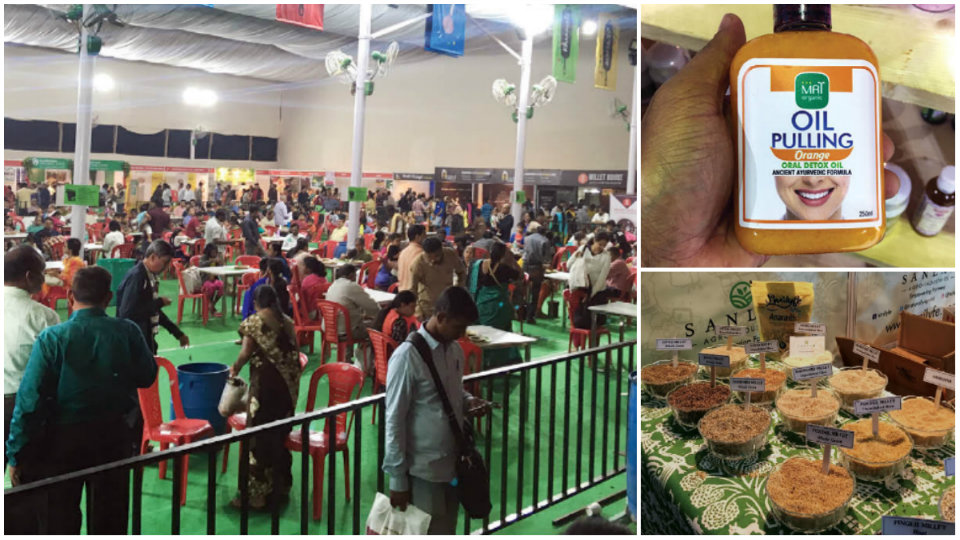
Two weeks ago I was in Bengaluru on work and I couldn’t escape the advertisements for the Organics & Millets International Trade Fair-2018. It was a three-day international conference organised by the Department of Agriculture, Government of Karnataka, to bring organic farmers, organic product processors, manufacturers of farm equipment and also showcase millet as the new grain to replace rice.
The massive billboards all over the city were enticing enough to make us want to visit the largest congregation of India’s organic community. The fair was held at Bangalore Palace. The event was well laid out and had gathered huge crowds. The food court was bustling and there was millet everywhere!
India has declared 2018 as the “National Year of Millets.” The government is promoting ‘millet’ because millets need very little water to grow, have a short growing period and grow well even under dry, high temperature conditions.
Apart from being a sustainable crop, millets are three times nutritionally superior to rice and wheat in terms of proteins, minerals and vitamins.
More importantly, in a diabetic nation like ours, millets are ideal as they have a low glycemic index and are gluten-free. Generally in Karnataka, Bajra (Pearl millet), Jowar (Sorghum millet) and Ragi (Finger millet) are the commonly known millets but there are many more such as Kodo, Proso, Foxtail and Barnyard millets, all of which were being promoted and sold at the fair. Visitors could even sample all kinds of dishes at the food court that were prepared using only millets.
The food court did a good job of conveying to visitors the message — what you can make with rice you can make with millet. I tried the dosa, the bisi bele baath and the puliyogare — all made from millets. Apart from these, there were interesting dishes such as millet pizzas, millet cutlets, millet matka juice and millet Mysore Pak!
The display of stalls had organic products from biscuits to cereals to premixed organic food packets. While there were big organic brands like Phalada Pure & Sure and 24 Mantra, there were also local farmers directly selling their organic harvest. I bought half-a-kilo of black rice for 75 rupees from an organic farmer from Mandya.
Then there were quirky products like organic itch relief oil and oral detox oil! This detox oil had a label that said ‘Oil Pulling’ — an ancient Indian technique where natural oil is swished around in the mouth for 15 minutes to supposedly remove plaque, whiten teeth and strengthen gums.
It is noteworthy that Karnataka was the first State in India to formulate an Organic Policy in 2004. The policy has evolved as the land under certified organic cultivation has grown from 2,500 hectares in 2004 to 93,963 hectares today.
Overall, the Organics & Millets International Trade Fair was well organised and to a large extent fulfilled its purpose of bringing the organic community together and promoting a smarter diet.
Yes, millets are indeed the smarter choice but rice is a hard habit to break and this trade fair has to some extent convinced me, a rice-eater, to give millet a chance.
e-mail: [email protected]








Recent Comments